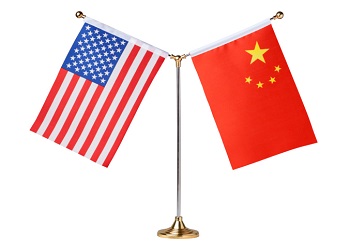
The US or China: Who is the better bet?
The US has retreated as a world leader on climate change, creating a vacuum that China is trying to fill. Yet, both have mixed records on climate. Will US’ position on climate, relative to China’s, contribute to weakening America’s national security position in Asia?
US vs. China
The US announced its retreat by giving notice of its withdrawal from the Paris Climate Accords. It reinforced the message by announcing its intent to replace the Obama Administration’s Clean Power Plan and automobile fuel economy standards with drastically weaker policies. In September at the UN Climate Action Summit, the US was not one of the sixty-five countries that pledged to achieve net-zero emissions by 2050.
Yet, despite these changes in Federal policy, the US is reducing its coal consumption. Markets, favoring cheaper natural gas, and state energy regulations have helped. The Energy Information Agency predicts coal’s share of US electricity generation will fall from 27 percent in 2018 to roughly 23 percent in 2020. It will be the first time since 1949 that coal-fired power generation will fall below 25 percent.
On the other hand, China is recommitting to the Paris Accords and making progress towards emissions targets. According to analysis conducted by the Natural Resources Defense Council, China is cutting its coal consumption and is on track to reduce coal’s share of total energy consumption from 64 percent in 2015 to 58 percent by 2020. China leads the world in wind and solar installation; its annual wind and solar installation is more than the US, EU, Canada, India, Japan, Korea, and Brazil combined.
China is investing in green technology and renewables: according to the Global Commission on the Geopolitics of Energy Transformation, “no country has put itself in a better position to become the world’s renewable energy superpower than China.” China is also a member of the Network for Greening the Financial System (NGFS), which aims to throw the weight of key financial institutions behind the goals of the Paris climate agreement. One of the goals of the NGFS is to promote markets for green bonds, and China is leading the way.
Like the US, however, China’s record is mixed. In September at the UN Climate Action Summit, Foreign Minister Wang Yi made no reference to China playing a leadership role on climate, nor did China join the pledge to achieve net-zero emissions by 2050. As part of its Belt and Road Initiative, China is exporting dirty energy; it is building or planning more than 300 coal plants in various countries—Turkey, Vietnam, Indonesia, Bangladesh, Egypt, and the Philippines. Approvals of new coal mine construction soared in 2019.
Who’s the better bet?
Many Asian nations face risks from climate change. Rising sea levels will destroy island nations in the South Pacific. Warming seas are driving fisheries north into waters controlled by other countries, creating the potential for international conflict. Extreme drought in India is forcing millions to migrate in search of water. Disappearing Himalayan glaciers will affect a critical water source for 250 million people living across eight different countries. Furthermore, the Himalayan glaciers feed ten of the world’s most important river systems, including the Ganges, Indus, Yellow, Mekong, and Irrawaddy rivers. These rivers directly or indirectly supply billions of people with food, energy, and livelihoods.
The US is the world’s second largest emitter of carbon annually, after China. And, US per capita emissions are more than twice China’s. American failure to reduce emissions means that there is less room in the global carbon budget for developing nations to improve the well-being of their people. From an Asian perspective, the American retreat from climate leadership may look like indifference to their climate risks and developmental challenges. Coming on the heels of American withdrawal from the Trans-Pacific Partnership trade agreement and US revision of the US-Korea free trade agreement, US climate policies may cast further doubt on America’s reliability as a partner, creating a vacuum China will attempt to fill.





